
The United Nations Stabilisation Mission in Haiti, also known as MINUSTAH, an acronym of its French name, was a UN peacekeeping mission in Haiti from 2004 to 2017. It was composed of 2,366 military personnel and 2,533 police, supported by international civilian personnel, a local civilian staff, and United Nations Volunteers. The mission's military component was led by the Brazilian Army and commanded by a Brazilian.

Cité Soleil is an extremely impoverished and densely populated commune located in the Port-au-Prince metropolitan area in Haiti. Cité Soleil originally developed as a shanty town and grew to an estimated 200,000 to 400,000 residents, the majority of whom live in extreme poverty. The area is generally regarded as one of the poorest and most dangerous areas of the Western Hemisphere and it is one of the biggest slums in the Northern Hemisphere. The area has virtually no sewers and has a poorly maintained open canal system that serves as its sewage system, few formal businesses but many local commercial activities and enterprises, sporadic but largely unpaid for electricity, a few hospitals, and two government schools, Lycée Nationale de Cité Soleil, and École Nationale de Cité Soleil. For several years until 2007, the area was ruled by a number of gangs, each controlling their own sectors. But government control was reestablished after a series of operations in early 2007 by the United Nations Stabilization Mission in Haiti (MINUSTAH) with the participation of the local population.
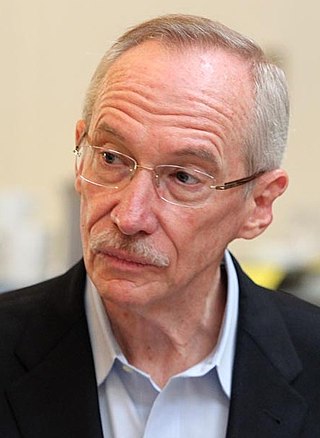
Edmond Auguste Mulet Lesieur is a Guatemalan diplomat, lawyer and notary public. He was appointed Head of the independent three-member panel to lead the Organisation for the Prohibition of Chemical Weapons (OPCW)-United Nations Joint Investigative Mechanism on 27 April 2017. Mulet served as the last Chief of Staff to United Nations Secretary-General Ban Ki-moon. Previously, he was Assistant Secretary-General for Peacekeeping Operations at the United Nations. He was appointed to this position on 2 June 2011. He was the Special Representative of the Secretary-General and head of mission of MINUSTAH, having assumed the functions of acting head of mission in the immediate aftermath of the 2010 Haiti earthquake, in which the previous head of mission, Hédi Annabi of Tunisia, perished, along with his deputy Luiz Carlos da Costa of Brazil, and the acting police commissioner, RCMP Supt. Doug Coates of Canada, when the mission's headquarters in Port-au-Prince collapsed.
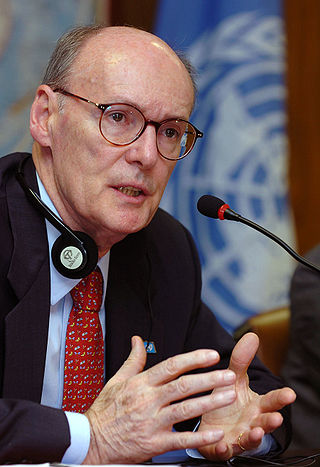
Hédi Annabi was a Tunisian diplomat and Special Representative of the United Nations Secretary-General, Head of the UN Stabilization Mission in Haiti (MINUSTAH). He was previously an Assistant-Secretary-General at the United Nations Department of Peacekeeping Operations, from 1997 to 2007.
The United Nations Mission in Haiti (UNMIH) was a peacekeeping operation carried out by the United Nations between September 1993 and June 1996. The Mission was reestablished (MINUSTAH) in April 2004, after a rebellion took over most of Haiti and President Bertrand Aristide resigned. This mandate ended in 2017, replaced by United Nations Mission for Justice Support in Haiti (MINUJUSTH), which saw the end of UN peacekeepers in Haiti after its ending in 2019.
Anthony Banbury was appointed the President and Chief Executive Officer of the International Foundation for Electoral Systems (IFES) in 2018. He served as United Nations Assistant Secretary-General for Field Support until 5 February 2016. He resigned from this position, stating that the UN is in dire need of reform. Drawing on more than 20 years of experience with the UN, he criticized its sclerotic personnel system, a lack of accountability, insufficient impact and the UN's inability to deal with transgressions by its own staff.
Luiz Carlos da Costa was an international civil servant working for the United Nations. Originally from Brazil, da Costa joined the United Nations in 1969 and stayed with the organization for the remainder of his life. His last assignment was as the Principal Deputy Special Representative of the Secretary-General for Haiti and second in command of the UN Stabilization Mission in Haiti (MINUSTAH). He died together with his superior, Tunisian Hédi Annabi, in the 2010 Haiti earthquake. On 18 January 2010, UN Secretary-General Ban Ki-moon and several high-ranking UN officials traveled from New York to Port-au-Prince to see the devastation firsthand. Mr. Ban hosted a small memorial service with both men's families at the airport in Port-au-Prince.

United Nations Security Council Resolution 1908, adopted unanimously on January 19, 2010, after endorsing the Secretary-General's recommendation, the Council increased the size of the United Nations Stabilization Mission in Haiti (MINUSTAH) established under Resolution 1542 (2004), in the aftermath of the 2010 Haiti earthquake. The resolution authorised an additional 3,500 peacekeepers for Haiti, bringing the total number of MINUSTAH troops to 8,940 and a police component to 3,711.

United Nations Security Council Resolution 1542, adopted unanimously on 30 April 2004, after receiving a report by the Secretary-General Kofi Annan, the council deplored all violations of human rights in Haiti and urged the Government of Haiti to promote and protect human rights with a State based on rule of law and independent judiciary.

United Nations Security Council Resolution 1944, adopted unanimously on October 14, 2010, after recalling previous resolutions on Haiti, including resolutions 1542 (2004), 1576 (2004), 1608 (2005), 1658 (2006), 1702 (2006), 1743 (2006), 1780 (2007), 1840 (2008), 1892 (2009), 1908 (2010) and 1927 (2010), the Council renewed the mandate of the United Nations Stabilization Mission in Haiti (MINUSTAH) until October 15, 2011.

United Nations Security Council Resolution 1951, adopted unanimously on November 24, 2010, after recalling previous resolutions on the situation in Côte d'Ivoire and the subregion, the Council authorised a temporary re-deployment of support from the United Nations Mission in Liberia (UNMIL) to the United Nations Operation in Côte d'Ivoire (UNOCI) for a period of four weeks.
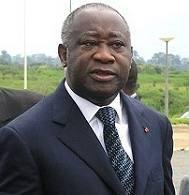
United Nations Security Council Resolution 1967, adopted unanimously on January 19, 2011, after recalling previous resolutions on the situation in Côte d'Ivoire, including resolutions 1933 (2010), 1942 (2010), 1946 (2010), 1951 (2010) and 1962 (2010), the Council increased the number of forces in the United Nations Operation in Côte d'Ivoire (UNOCI) by 2,000. It was the first Security Council resolution adopted in 2011.

United Nations Security Council Resolution 1968, adopted unanimously on February 16, 2011, after recalling previous resolutions on the situation in Côte d'Ivoire, including resolutions 1933 (2010), 1942 (2010), 1946 (2010), 1951 (2010), 1962 (2010) and 1967 (2011), the Council extended the deployment of troops from the United Nations Mission in Liberia (UNMIL) to the United Nations Operation in Côte d'Ivoire (UNOCI) for an additional three months.

United Nations Security Council Resolution 1608, adopted unanimously on 22 June 2005, after recalling resolutions 1542 (2004) and 1576 (2004) on the situation in Haiti, the Council extended the mandate of the United Nations Stabilisation Mission in Haiti (MINUSTAH) until 15 February 2006 and increased its strength.
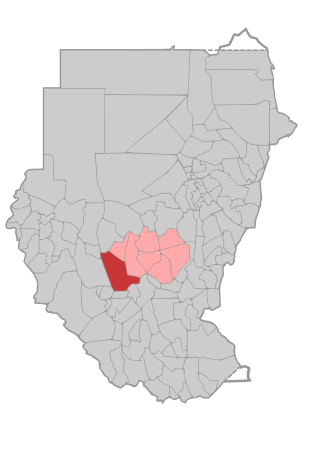
United Nations Security Council Resolution 1990, adopted unanimously on June 27, 2011, after recalling all previous resolutions on the situation in Sudan and the Comprehensive Peace Agreement, the Council established the United Nations Interim Security Force for Abyei (UNISFA) in the disputed Abyei region between Sudan and South Sudan.

United Nations Security Council Resolution 2012 was unanimously adopted on 12 October 2011.
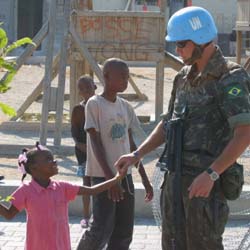
United Nations Security Council Resolution 1780 was unanimously adopted on 15 October 2007.
United Nations Security Council Resolution 1892 was unanimously adopted on 13 October 2009.
United Nations Security Council Resolution 1840 was unanimously adopted on 14 October 2008.

The United Nations Mission for Justice Support in Haiti (MINUJUSTH) was a peacekeeping mission in Haiti mandated by the United Nations Security Council through Resolutions 2350 (2017) and 2410 (2018). It was the successor to MINUSTAH.













